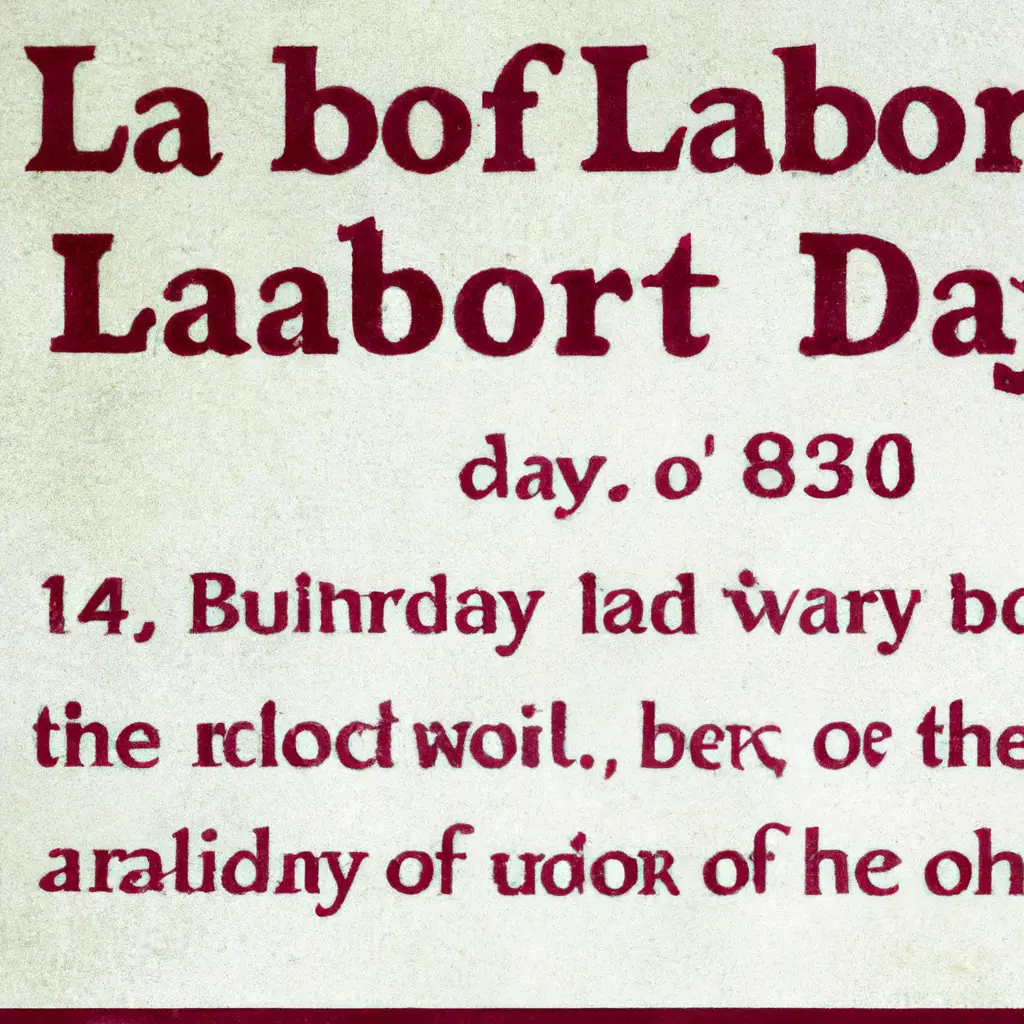Picture this: It’s the late 1800s, and America’s workforce is in the midst of a major shift. The industrial revolution is in full swing, and workers are toiling away in factories and mines for long hours, meager pay, and often in unsafe conditions. As tensions between labor and management rise, a movement begins to gain momentum – a movement that would eventually lead to the creation of Labor Day.
Labor Day, celebrated on the first Monday of September, is a national holiday dedicated to honoring the contributions of American workers. But how did this holiday come to be? Let’s take a closer look at the origins of Labor Day and how it evolved into the holiday we know today.
One key point to consider is the rise of the labor movement in the late 19th century. Workers were beginning to organize themselves into labor unions in order to advocate for better working conditions, higher wages, and shorter hours. One of the major labor unions at the time was the Knights of Labor, which played a crucial role in the fight for workers’ rights.
Another important event in the history of Labor Day was the Haymarket Affair of
1. In Chicago, a peaceful labor rally turned violent when a bomb was thrown at police, leading to a riot that resulted in the deaths of several people, including police officers. This event sparked widespread outrage and led to increased support for the labor movement.
In response to these events, the first Labor Day parade was held in New York City in
2. The parade was organized by the Central Labor Union to showcase the strength and solidarity of the labor movement. Over the years, Labor Day celebrations spread to other cities and states, eventually leading to the establishment of Labor Day as a national holiday in
3. Today, Labor Day is a time to reflect on the hard work and dedication of American workers, as well as to enjoy a well-deserved day off with friends and family. It serves as a reminder of the struggles and triumphs of the labor movement, and the importance of standing up for workers’ rights.
In conclusion, the origins of Labor Day can be traced back to the tumultuous period of the late 19th century, when workers were fighting for fair treatment and better working conditions. Through the efforts of labor unions and the sacrifices of those who came before us, Labor Day has become a symbol of solidarity and appreciation for the contributions of American workers. So as you enjoy your day off this Labor Day, take a moment to remember the history behind this important holiday.
